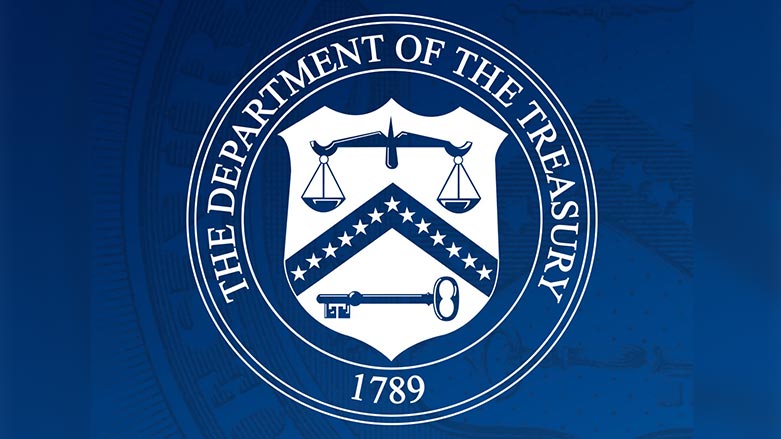U.S. Sanctions Iran—Second Time this Week

WASHINGTON DC, United States (Kurdistan 24) – The U.S. announced new sanctions on Iran on Thursday, marking the second time this week that Washington has imposed punitive measures on Tehran.
The new measures underscore the extent of the Biden administration’s change of policy toward Iran, since it first took office in January 2021, when its top priority was to restore the 2015 nuclear deal, formally known as the Joint Comprehensive Plan of Action (JCPOA), which Donald Trump left in 2018.
Three factors have contributed to this change. One is the perception that the Iranian regime negotiated in bad faith during the first 18 months in which the Biden administration and its European partners sought to renew the JCPOA.
A second factor is the protests in Iran, triggered by the Sept. 16, 2022, death of the young Kurdish woman, Zhina (Mahsa) Amini, while in the custody of Tehran’s so-called “morality police” for not properly wearing her headscarf.
And the third factor has been Iran’s open alignment with Russia in its unprovoked aggression on Ukraine, including, most prominently, Tehran’s supply of explosive drones to Moscow.
The Ukraine war is a top national security concern for the U.S. and Europe. As recently as Monday, John Kirby, Coordinator for Strategic Communications at the National Security Council, complained to journalists that Russian President Vladimir Putin “continues to bomb and strike, with Iranian drones, civilian infrastructure throughout Ukraine.”
First Sanctions: For Violent Suppression of Popular Protests
On Monday, the U.S. sanctioned six senior officials in the Islamic Revolutionary Guard Corps (IRGC) and in Iran’s law enforcement agencies, which it described as “the primary Iranian security forces responsible for the regime’s brutal suppression of the protests that broke out in September 2022, following the arrest and death of Mahsa Jina Amini while in the custody of Iran’s Morality Police,” the Treasury Department said in announcing the new measures.
Four of those sanctioned are IRGC commanders. Two of them operated in Iran’s far eastern province of Sistan and Baluchistan, which is the homeland of the Baluch people, that borders Pakistan and Afghanistan, which also include significant Baluch populations.
The Baluch are Sunnis, with their own language and compact territory, and chafe at the controls imposed on them by the Shi’ite rulers in Tehran. Indeed, Iraq’s Sunni regimes—from the monarchy to Saddam Hussein—often supported Baluch revolts as a means of exerting pressure on Tehran.
Parvis Absalan, the Deputy Commander of the IRGC’s Salman Corps of Sistan and Baluchistan Province, was among those sanctioned on Monday.
“The Salman Corps were involved in the violent suppression of protests in Sistan and Baluchistan, which resulted in some of the largest casualties nationwide, following the outbreak of protests in September 2022,” the Treasury Department stated, in explaining the reasons for sanctioning Absalan, as well as the former Commander of the Salman Corps, Amanollah Goshtasbi (Goshtasbi has since been promoted to Deputy Inspector of the IRGC’s Ground Forces!)
Second Sanctions: Those Responsible for Wrongful Detention of U.S. Nationals
On Thursday, the Treasury Department announced a second set of sanctions on Iran. These sanctions were based on an executive order, issued by President Joe Biden last July, entitled, “Bolstering Efforts to Bring Hostages and Wrongfully Detained U.S. Nationals Home.”
The sanctions were placed on the IRGC’s Intelligence Organization (IRGC-IO), which “frequently holds and interrogates detainees in the notorious Evin Prison,” the Treasury Department said. In addition, the IRGC-IO has a “direct role in the repression of protests and arrest of dissidents, including dual nationals.”
Four senior officials in the IRGC-IO were also designated. They include Mohammad Kazemi, who, in June 2022, became Commander of the IRGC-IO. In that capacity, he oversaw “the regime’s brutal crackdown against protests across the country, in response to the killing of Mahsa Amini,” the Treasury Department said.
The IRGC-IO’s top Counterintelligence official, Ruhollah Bazghandi, was also sanctioned. He is “involved with the detention of foreign prisoners” in Iran, while he has also been engaged in “IRGC-IO’s operations in Syria and assassination plots against journalists, Israeli citizens, and others deemed enemies of Iran,” the Treasury Department explained.
A third sanctioned individual—Mohammad Hasan Mohagheghi—also worked in Syria, where he “served as a liaison between senior IRGC officials and IRGC-IO officials on counterespionage operations.”
